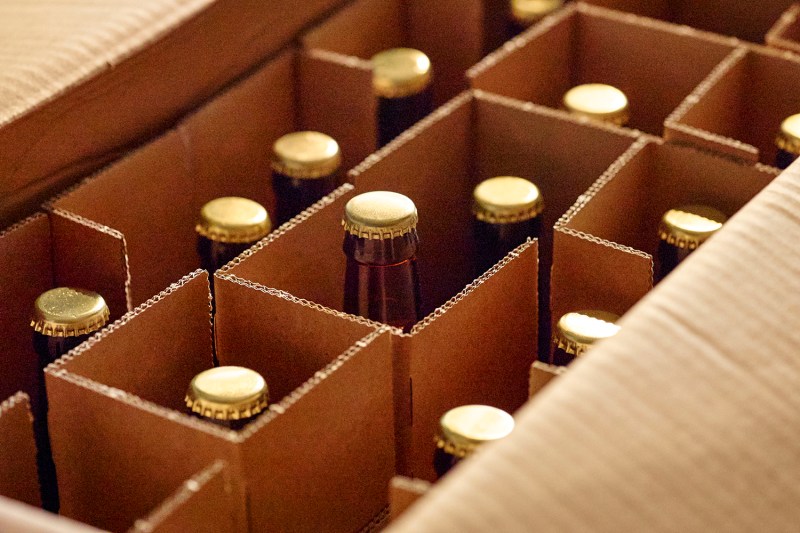For some 18 million Americans, Prohibition lingers. Counties from Texas to Massachusetts are still officially dry, functioning rather miraculously without readily accessible booze close to 90 years after the nation’s major anti-hooch law was repealed.
Now, this doesn’t mean that alcohol is outlawed in these areas. Uncle Sam wouldn’t stand for such a thing. Nor would the 21st Amendment. We’ve all seen the black and white photos depicting well-dressed tee-totalers pouring bottles of spirits and barrels of wine down storm drains and sewer grates. It’s not like that, especially amid the privacy and vast freedoms afforded within the walls of your American home.
A dry county, by definition, simply prohibits the sale of alcohol. But that’s still pretty shocking given that it’s 2019. In this day and age, we have it delivered to our door step via apps. Dry counties are even more shocking for the tourists and truck drivers who have experienced them firsthand, via this entertaining Reddit feed.

The persistence of dry America is significant and not entirely rational. Arkansas alone has more than 30 dry counties. As recently as 2004, Alaska was said to have more than 80 dry counties. The majority exist in the South, but they are sprinkled throughout the U.S. all over. It’s a strange continuation of forgotten legislation, abstinence culture, corporate interest, history, and religion.
In some cases, it’s a more digestible concept. Take Oglala Lakota County, South Dakota’s only dry area. It falls entirely within the Pine Ridge Indian Reservation. Regrettably, Native Americans have been a marginalized part of the population for centuries, carrying a more than complicated relationship with alcohol. Then there’s Utah, where Mormonism is the prevailing faith and religion forbids the stuff. But places like Stanton, Texas? Argyle, New York?
In other cases, it’s borderline absurd. The most famous example is Moore County, home of the Jack Daniels distillery. One of the most iconic whisky labels operates within a dry county. That means outside of the formal tour, you won’t be running into any Jack at any of the local eateries or watering holes.
The folklore surrounding dry versus wet in this country is rich. In 1972, authorities raided a couple of trains passing through Kansas and Oklahoma. At that time, both states were dry and trains were not allowed to serve hooch within state lines. A sting operation led to an agent grabbing a drink and ultimately shutting the whole thing down, arresting a handful of people and emptying the bar car of its precious cargo.
Where there are dated laws there’s opportunity. Bootlegging, a brand of crime we tend to attach to the pinstripe suit and tommy gun era, is actually alive and well today. Irregular taxes on booze from state to state — often backed by the largest players in the industry to thwart competition from the little guys — has ushered in all kinds of illicit activity. Newsweek touched on the trend that’s recently unfolded in the Midwest especially.

Then there’s the beer mail movement, something spawned from both the rise of craft as well as dated or confusing laws. Folks trade beers online, navigating around traditional retail chains and commerce avenues. It seems like a lot of work for somebody living in Seattle but if you call Stanton home, it may be your only shot at 3-Way IPA or Pliny the Elder. For a lot of dry county residents, a Wi-Fi connection is enough to at least get a glimpse of the vast galaxies of booze that so many of us take for granted.
We want what we can’t have, perhaps even more so when it’s fully outlawed. There’s a certain allure to all things illicit. Thirsty dry county residents may not be able to find a six-er of High Life at the bodega down the street, but they sure can across county or state lines. That commute is one thing, but it becomes something else entirely when said travelers are bellying up at the bar 20 miles away. Too many drinks later, they’re back behind the wheel, posing a potential threat to others. Some studies have indicated that alcohol-related automobile crashes are markedly higher in the drier parts of the country.
Will we have dry counties a century from now? Probably a few. Utah just recently did away with its longstanding 3.2% beer law, but the new cap is still a staggeringly low 4% ABV. It’s no dry state, but it’s dry-ish, barely moist even. Some states still do not allow the direct delivery of alcohol and there are entire organizations lobbying for reform.
Some relics just have a way of staying on the books.


